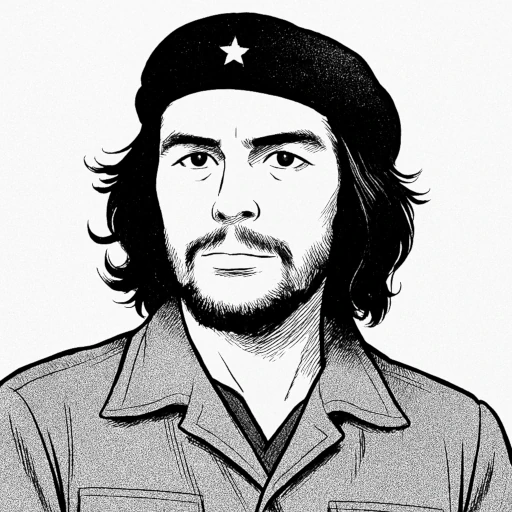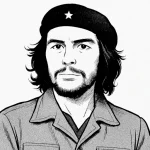“I could become very rich in Guatemala but by the low method of ratifying my title, opening a clinic, and specialising in allergies. To do that would be the most horrible betrayal of the two ‘I’s’ struggling inside me: the socialist and the traveller.”

- June 14, 1928 – October 9, 1967
- Born in Argentina
- Revolutionary, doctor, writer, politician
table of contents
Quote
“I could become very rich in Guatemala but by the low method of ratifying my title, opening a clinic, and specialising in allergies. To do that would be the most horrible betrayal of the two ‘I’s’ struggling inside me: the socialist and the traveller.”
Explanation
In this quote, Che Guevara reflects on a critical moment in his life when he had the opportunity to take a comfortable, lucrative path as a medical professional in Guatemala, where he could have easily opened a clinic and pursued a prosperous career. However, Guevara rejects this option, not because of a simple preference for poverty, but because it would have represented a betrayal of his values and his vision for the world. He describes this potential career path as a “low method,” implying that pursuing material success at the expense of his deeper ideals would have compromised his integrity. Guevara’s internal conflict between his desire for personal gain (“the traveller”) and his commitment to socialism and revolutionary ideals is depicted here as a struggle between two opposing aspects of his identity. For Guevara, to embrace this comfortable life would have meant forsaking the sacrifice and struggle necessary to advance the cause of social justice.
The quote illustrates the deeply held belief that one’s life choices must align with their values and commitments. Guevara’s rejection of personal wealth and comfort in favor of fighting for the oppressed reflects his personal sacrifice and his conviction that social change is not just an intellectual pursuit, but a lifestyle that requires active participation and sometimes personal hardship. By invoking the “two ‘I’s” inside him—his role as a socialist and a traveller—Guevara articulates the tension between personal ambition and a broader, global vision of justice. The socialist within him pushes for collective action and revolution, while the traveller represents a more individualistic urge for adventure or prosperity. His decision to side with socialism highlights his commitment to a universal cause, where the needs of the many outweighed the desires of the individual.
In a modern context, Guevara’s words can be seen as a challenge to those who, in the pursuit of personal success or wealth, may ignore the larger social issues affecting their communities or the world. In today’s context of income inequality, environmental degradation, and political corruption, Guevara’s rejection of a selfish, individualistic path calls for a reflection on how personal choices align with broader ethical or political responsibilities. Activists, leaders, and citizens today are often faced with the tension between personal gain and the responsibility to address global injustices—whether it’s in the form of corporate greed, unsustainable development, or social inequality. Guevara’s words act as a powerful reminder that true revolutionary action requires the courage to prioritize collective welfare over personal comfort or gain.
Would you like to share your impressions or related stories about this quote in the comments section?
